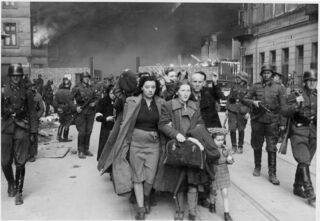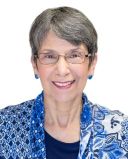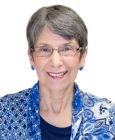Fear
A Survivor’s Perspective on Antisemitism
Do not forget what hatred can do.
Posted July 14, 2021 Reviewed by Ekua Hagan
Key points
- Antisemitism is an ongoing and escalating problem, with 2020 showing the third-highest spike on record of anti-Jewish sentiment.
- Surveys show that Jewish-Americans are feeling less safe today than in the past 10 years.
- As the number of living Holocaust survivors continues to decline, it is important to learn from their experiences.

Antisemitism, the hatred of Jews, is often referred to as history’s oldest hatred. Its origins are ancient, dating back centuries before Christianity to the Greek, Roman, and Babylonian civilizations. The term antisemitism was not used until 1879 when it was so named by a German journalist, Wilhelm Marr.[1] Regardless of what it is called, it has been an ever-present threat for Jews for millennia. Antisemitism ebbs and flows but never really goes away. It is always beneath the surface waiting for someone or something to bring it out in the open.
The Rise of Modern Antisemitism
In the 21st century, Jews are once again being attacked in the streets, harassed, and murdered. Synagogues are being defiled in the United States and abroad. One might think there has been a time warp and we have been transported back to 20th-century Germany where events like these escalated, ultimately leading to the death of six million men, women, and children whose only crime was being Jewish. The United States has been, and still is, considered a safe place for those escaping tyranny and persecution. To many survivors of the Holocaust, America was seen as “the promised land,” offering the best chance for safety and promise to the refugees.
The Anti-Defamation League (ADL) has been monitoring antisemitic crimes for the past 40 years. The year 2020 saw the third-highest spike on record of antisemitism. Jews make up less than 3% of the American population but the majority of reported religiously based hate crimes in the United States were against the Jewish people. Today, more than half (59%) of Jewish Americans polled feel less safe in the United States than 10 years ago.[2]
Concerns over the increase in these events have resulted in many Jews changing their everyday behaviors. Some are not attending synagogues or Jewish-sponsored events. People are avoiding identifying themselves as Jews on social media. Others try to hide their identity by not wearing any outward signs of their religion.
What is happening? Author and Auschwitz survivor Elie Wiesel has said that people are no longer ashamed of being antisemitic.[3] After WWll and the Holocaust, antisemitism did not go away, but people were more reluctant to express their feelings. However, antisemitism is once again resurfacing all over the world. The fear is that another writer and Auschwitz survivor, Primo Levi’s admonishment might be true: “It happened before and it can happen again.”[4]
An Interview with a Survivor
As these events began to unfold, my thoughts immediately went to the Holocaust survivors and what this must be like for them. Around the world, the number of living survivors is becoming fewer and fewer. Those who are still alive were children during the war. Here in New Orleans, there are currently only two survivors left: sisters who were four and two years old at the outbreak of the war.
I had the pleasure of meeting with Ann Skorecki Levy, who was originally from Poland. She, her sister, and her parents were forced into the Warsaw Ghetto. More specific details of their harrowing survival and ultimate arrival in America can be found in the book Troubled Memory by Lawrence N. Powell. Mrs. Levy is also somewhat of a folk hero in Louisiana. In 1989, she confronted David Duke, a member of the Louisiana House of Representatives, on his Holocaust denial. She continued to confront him in his run for the Senate and the governorship of Louisiana. Her bravery not only led to his defeat but also helped her find her voice, not only empowering her but others as well. Mrs. Levy then began sharing with others about what she and her family went through during the war. Since then she has gone to many schools and events to speak about her experiences and how deadly antisemitism can be.
I visited Mrs. Levy to ask her views about the current worldwide rise in antisemitism.
Marilyn Mendoza: How has the recent surge in antisemitic attacks affected you?
Anne Levy: It is very discouraging. I feel like we are seeing what used to be in Europe. It is frightening. People don’t know history. Europe went through this and we didn’t learn anything from it and our politicians didn’t learn anything from it. The younger generation does not get it but when they are exposed to it, they ask questions and learn. I used to give a lot of talks but I don’t do that much anymore. I haven’t really gone anyplace for the past two years because of the pandemic.
It is different now. There is so much hate. There is no kindness and respect for each other and I don’t know how we get it back. People are so polarized. You have to be more cautious in what you say. Friends will get angry with you if you don’t agree with them. People are afraid to say things because it can be dangerous. I have a tremendous fear. Humans can do horrible things to each other. We have to wake up and think rationally. If we wait too long, it will be too late. It is a sad time for all of us. We must be vigilant. Don’t follow people blindly.
MM: Do you find that these events trigger your trauma?
AL: I use to have terrible nightmares but I learned that if I play the radio at night, I can go to sleep. I still do that today. I used to cry every time I gave a talk. I could not control it. Then I heard veterans talking and crying about their experiences. I thought if they are crying, then I am OK.
MM: What do you believe is the most effective way to confront antisemitism?
AL: I believe that educating people about the facts is very important. I remember one talk I gave at a high school. There was a girl there who knew her father hated Jews. She wrote to me later and told me she confronted her father with what she had learned. If we don’t teach, who will?
MM: Thank you for talking with me today. What is it that you would like people reading this to know?
AL: Be vigilant. Don’t follow people blindly. Be sure of the character of the person you are electing. We should be more tolerant of each other. Listen to each other. Be grateful for what we have. Just be civil to each other. How did we forget that?




